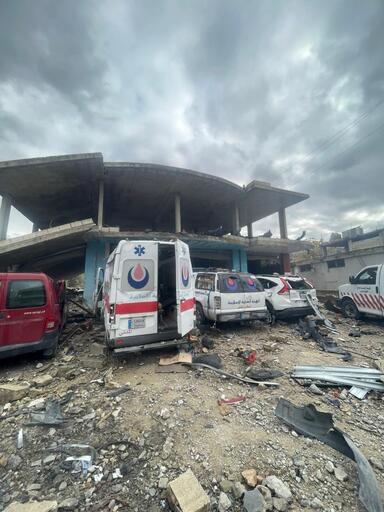With near daily airstrikes against Lebanon and thousands of Israeli ceasefire violations documented since the ceasefire went into effect, there is growing pressure on the ceasefire monitoring committee to actually chime in on the matter.
The ceasefire monitors, which are led by the United States and France, will meet on Thursday to discuss the ongoing violations, which include airstrikes and on-again, off-again ground invasions of southern Lebanon.
Lebanese President Joseph Aoun started agitating for the ceasefire committee to do something after a weekend attack on the capital city of Beirut. Since then Hezbollah has also been pressing the Lebanese government to do something about the matter.

An image of southern Lebanon after the ceasefire began. ©MSF
French officials have at times criticized Israel’s violation, but so far no actions have been taken by the ceasefire committee, and US officials have tended to praise Israel irrespective of the attacks, making any committee action an uphill battle, despite the flagrant and massive number of such violations.
The Israeli military reported that they carried out over 50 attacks against Lebanon in the past month. This included strikes on workers clearing southern farmland for the planting season, and multiple different incidents where civilians were reported killed.
Unsurprisingly, Israel’s official take was that every single attack was against a “terror target.” This is in keeping with a narrative where deadly strikes, to the extent Israel comments on them at all, are always presented as at least hitting a “Hezbollah operative,” and often a high-ranking leader, even if the evidence points to them being a civilian.
Adding to the international furore against the strikes, Human Rights Watch issued a report last week criticizing Israel for indiscriminate attacks on the civilian population of Lebanon. This is likely to further add to the pressure for the ceasefire committee to not simply delay their reaction as they have for the last several months.
It will be likely that another matter coming up during the meeting is the requirement for the Lebanese Army to deploy across southern Lebanon. They haven’t completed such deployments yet, though Lebanese officials have said that is because the active Israeli attacks and occupation of parts of the south have made some areas unsafe to send troops to.


